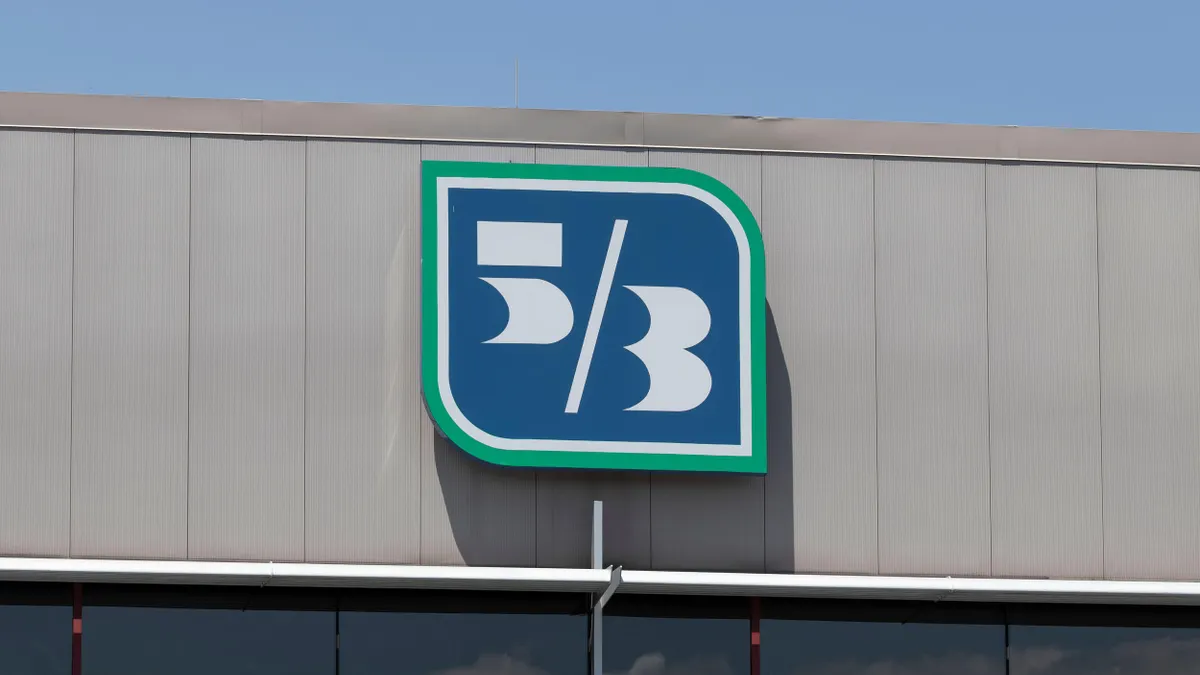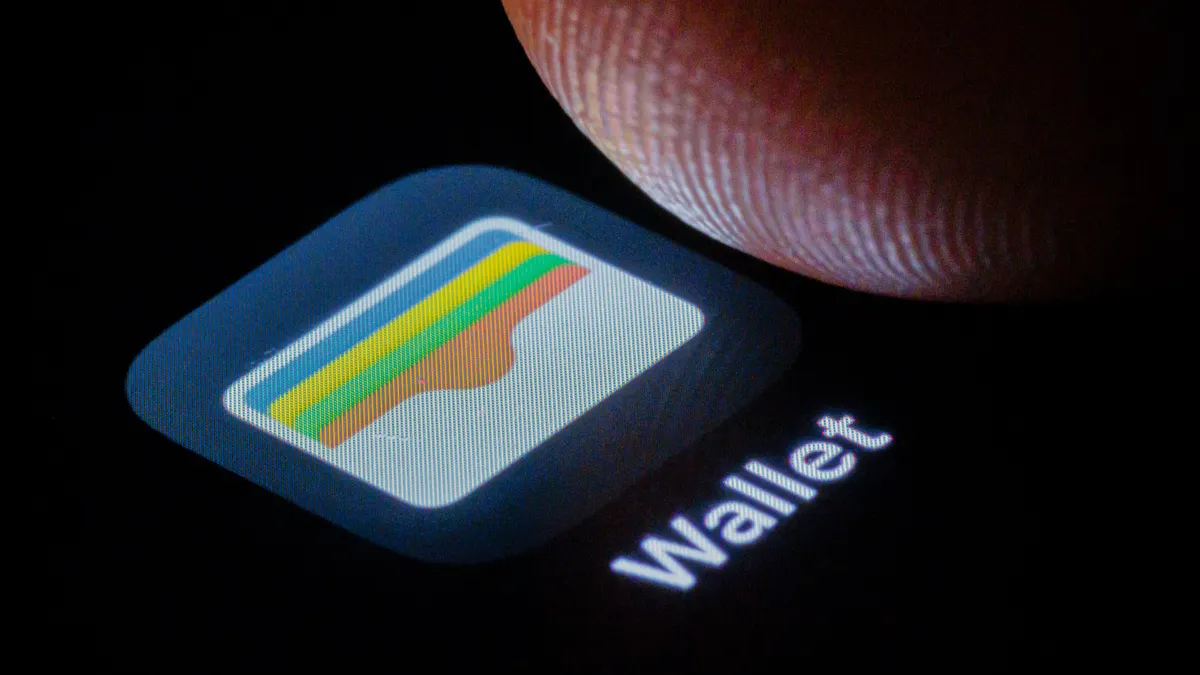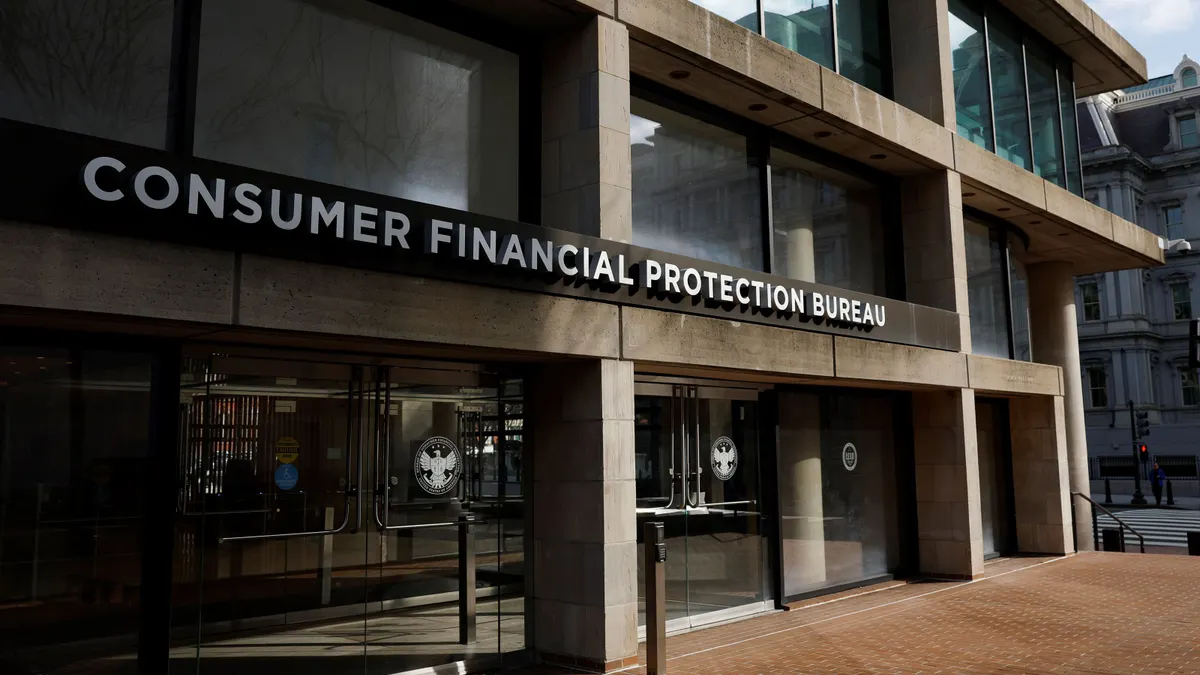Synchrony Financial, which manages credit card options for major retailers, is doubling down on developing digital wallet services for those clients, and may even launch its own digital wallet.
“We still provide the physical plastic [card] in the more traditional way, the same way we've been doing it for 20 years,” said Mike Bopp, Synchrony’s chief growth officer.
The company’s approach on that front, though, “has to change because the consumer expectations are changing,” Bopp said, adding, “We need to create a more digital experience.”
Of the new accounts Synchrony customers open each year, most consumers are still getting the physical card, or a digital card in addition to a physical card, with just 5% to 10% purely digital, Bopp said.
The company has 70 million active cards issued on behalf of its merchant partners — clients that include Amazon, Lowe’s, JCPenney and Walmart affiliate Sam’s Club, according to a filing with the Securities and Exchange Commission. Digital payments pioneer PayPal is also a big customer, according to the filing.
The merchant partners still want physical cards because it’s great marketing, given their names and logos are on the plastic, but Synchrony knows consumers are segueing to digital, Bopp said. So, the company aims to persuade its retail and merchant clients to work with Synchrony on developing virtual card approaches that provide the same marketing benefits, he said.
For now, Synchrony is only allowing its digital cards to be provisioned into digital wallets from other companies, such as Apple, Samsung or Google wallets. “Our strategy is to work very, very closely with our partners to do as much as we can to get those cards into digital wallets,” Bopp said.
Contemplating a Synchrony digital wallet
Still, Synchrony is mulling the possibility of creating its own digital wallet at some point, if its customers want that option, Bopp said.
“The idea of allowing [consumers] to access multiple Synchrony virtual cards through a wallet that we potentially sort of own is something that we're thinking about, but for now, we're not there,” he said.
The company would work closely with its merchant clients if it were to develop its own digital wallet, and only do so if testing showed it could benefit the company’s retail clients, Bopp said.
Synchrony has to be careful about treading on partners’ turf, said Michael Miller, a Morningstar analyst who follows the company. There is “the issue of whether it would lead them to step on the toes of some of their existing partners, particularly PayPal, which includes Venmo," Miller said.
To date, Synchrony has been adept at building in-app mobile cards, plus related management tools, and that has likely smoothed the way for partnerships with big tech companies like Amazon and PayPal, Miller said.
"When you look at digital card provisioning, digital wallets are a logical progression so it makes sense that Synchrony would consider looking at that space," Miller added. "That said, I don’t think there’s much room for digital wallets to be a game changer for [Synchrony] since at the end of the day their core business is lending.”
Miller also doesn’t see a differentiating avenue for Synchrony.
“I think they are a bit late if they want to compete with the other digital wallet options and they lack anything to give them a material advantage," he said.
Seeking new revenue streams
Synchrony is exploring its digital options as its core business faces a potential regulatory setback — namely, a cap on late fees that can be imposed on consumers when they miss their minimum payments on outstanding debt. The Consumer Financial Protection Bureau last month proposed a maximum $8 late fee, or 25% of a minimum payment due.
That could take a toll on card companies that derive significant revenue from such fees, including Synchrony. The Stamford, Connecticut-based company also earns revenue from interest on the loans extended to consumers.
Late fees equal about 17% of Synchrony’s net interest income, according to UBS analysts. “Given the partner-oriented nature of its model, we’ve heard doubts expressed over the company’s ability to offset the pain,” the analysts said in a report last week.
Still, the UBS analysts recognized Synchrony’s efforts to bolster new revenue flows.
“We think [Synchrony] has an array of options at its disposal, ranging from additional revenue streams to credit adjustments — though adjusting partner agreements is likely at the bottom of the priority list,” the analysts wrote.
By Bopp’s account, the company’s digital wallet strategies are part of efforts to increase revenue flow.
Another reason Synchrony may want to pursue its own digital wallet is the possibility that some day it may not be able to work through others’ wallets, for whatever reason. That could turn those digital partners into competitors.
“In the future, we expect our products may face increased competitive pressure to the extent that our products are not, or do not continue to be, accepted in, or compatible with digital wallet technologies such as Apple Pay, Samsung Pay, Android Pay and other similar technologies,” the company warned in the SEC filing.





















